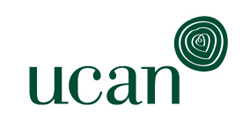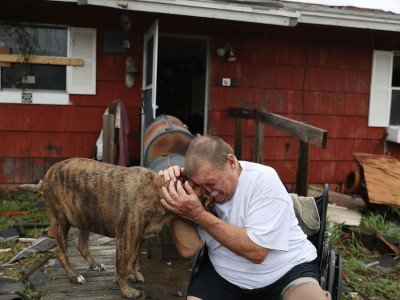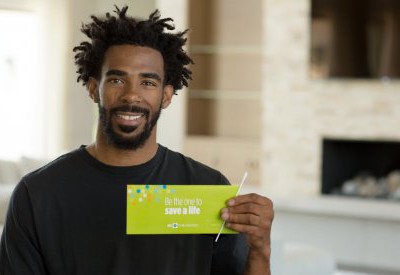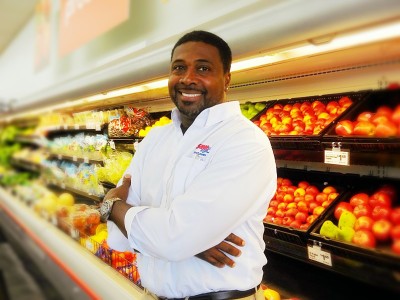The keynote speaker at the opening of this year’s Black Male Summit at the University of Akron shaped his message to reflect events surrounding the February shooting death of teen Trayvon Martin in Florida.
“The conversation has been focused on [suspect] George Zimmerman, which is rightfully so, but I want to change the conversation not to what Zimmerman should have done differently, what the police should have differently or what the government should have done differently, but rather what do we, as black males, need to do differently in the wake of Trayvon Martin’s killing,” Randall Pinkett told a sold-out ballroom at the UA Student Union.
Black men from colleges across the nation were in attendance.
Pinkett, co-founder, chairman and chief executive of BCT Partners, works with corporations, and government, health and educational agencies. He said he felt the annual summit at UA was an opportunity he could not pass by because the topic has weighed heavily on his spirit, heart and mind.
“I want to speak from the heart of the things that are on the forefront of my mind in the context of the Black Male Summit,” Pinkett said, but emphasized his message extends to all groups.
There is work to do and there are lessons for everyone to learn to prevent such tragedies from happening again, Pinkett said.
“I have to be very careful given the highly charged and politicized nature of what is taking place in Florida, but also to not point the finger at the victim to have had behaved differently. The only person to blame for his death is George Zimmerman,” Pinkett said.
The problems black males face are not theirs only, but an American problem, he said. He advocates for people to stand against injustice of all kinds.
“You have three choices: Take flight, forgo the situation or to fight. We must stand for something or fall for anything,” Pinkett said.
“As black men we have the responsibility at some point in our lives to stand up because someone fought for us. Someone was confined to a concrete cell so we could break through the glass ceiling,” he said as he began to lay out five key tasks for black males to consider.
The second task he advocates is for black males to make their presence seen and voices heard on issues that affect them.
“You must be visibly involved and vocally involved on issues that affect us for other groups to respect us,” he said. “This includes simple acts of signing petitions to more sophisticated acts of assuming leadership in your community.”
The third task: Stand and support others.
Pinkett said there is diversity in efforts to bring justice for Martin, but in the publicized gatherings, it is not displayed.
It is equally important that black people stand up for things that are affecting people of different ethnic or racial backgrounds.
“We can not only be upset when it affects us,” he said.
The fourth task Pinkett urged his listeners is to connect with people who are different from them and foster real relationships.
“Step out of your comfort zone. Do this to not have the most diverse network but to have diversity in your network,” he said. “It is easy to come together, but it is hard to stay together.”
He challenged the audience to think of ways to build a bridge with people from other ethnic groups and backgrounds.
The final task Pinkett advocates is for individuals to connect with like-minded people.
“Unity has incredible power,” he said.
Pinkett suggested for all to look at the progress of black males in America.
“Donald Trump made a black man his apprentice,” said Pinkett, winner of Season 4 of the NBC reality series The Apprentice.
“There is still so much work to be done by all.”
Uhlich Children’s Advantage Network (UCAN) was founded in 1869 and has remained dynamic, evolving with the tremendous challenges facing disadvantaged children, their caregivers and families. Today, UCAN is a multi-faceted social service organization serving youth in the care of the state of Illinois and other at-risk populations. UCAN’s mission is to build strong youth and families through compassionate healing, education and empowerment, and UCAN serves 12,000 children, youth and families annually across a wide spectrum of programs and services. For more information, please visit www.ucanchicago.org








